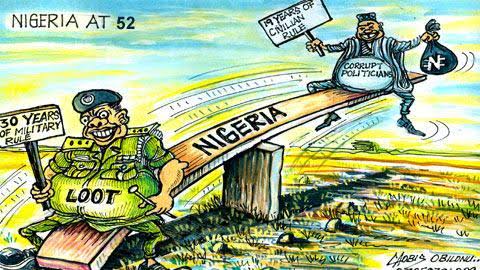
In a shocking interview, a former commissioner in Nigeria, who is now a pastor, has spoken out about the immense pressure and expectations placed on politicians in the country, leading them down a path of corruption. The interview, originally intended to focus on Christians in politics, took a drastic turn as the commissioner detailed the challenges he faced during his tenure.
The commissioner, whose name was not disclosed during an interview by Bola Adewara, editor E-life, argued that even if revered figures such as Jesus or Mohammed were in political positions in Nigeria, they would ultimately be forced to resign due to the overwhelming pressure to engage in corrupt practices. According to the former commissioner, politicians are not inherently corrupt before being elected or appointed. However, the high expectations and demands placed on them by the Nigerian people push them towards engaging in unethical behavior.
The interviewee shared a personal account of his experience, recounting how his troubles began even before he was officially sworn in as a commissioner. His wife, fueled by the perceived change in status, immediately began purchasing expensive items on credit and demanding a more lavish lifestyle as the wife of a commissioner. This was just the beginning of a flurry of demands from family members, friends, and even strangers who began flocking to his home.
The pressure escalated further on the day of his inauguration, with security details, personal assistants, and staff members all expecting significant financial contributions and luxurious arrangements. In order to meet these demands, the former commissioner was forced to borrow a substantial sum of money, plunging him into debt.
As he assumed office, the commissioner discovered the prevalence of corruption within the civil service. He claimed that civil servants, motivated by self-preservation, often exploited the system to extract gifts from politicians. These gifts, which ranged from cash to material possessions, weighed heavily on his conscience. Though he managed to repay his debt within a month, the commissioner found himself ensnared in a cycle of corruption that grew increasingly difficult to escape.
The burdens placed on the commissioner extended beyond his professional life. His family members, including siblings and their spouses, demanded extravagant homes and vehicles, expecting him to provide for them. Additionally, even his religious community placed expectations on him, with his pastor requesting financial support for various church projects. The commissioner expressed his frustration with certain pastors, claiming that stolen government funds regularly found their way into church donations and tithes.
The pressure to constantly donate and meet the demands of myriad social circles took a toll on the commissioner’s mental well-being. He revealed that he became the subject of criticism and animosity from friends and acquaintances who felt he had not done enough for them financially. The weight of these expectations and the strain it put on his relationships left the former commissioner feeling isolated and desperate to repair his damaged connections.
The commissioner’s story provides a distressing insight into the complex dynamics between Nigerian politicians and the public. While corruption at the political level has been a long-standing issue in the country, this interview sheds light on the role played by the expectations and demands placed on politicians by the Nigerian people. It emphasizes the need for a shift in societal attitudes and the nurturing of a more supportive and responsible citizenry.











